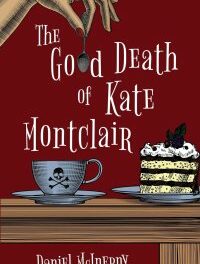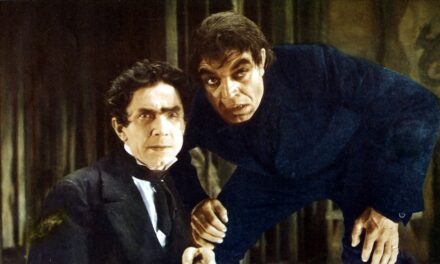We support our Publishers and Content Creators. You can view this story on their website by CLICKING HERE.
It’s weird that my musings should have led me from the conviviality of the Super Bowl Party to thoughts of the Nazi Party. Such was the shadow that fell during the commercial breaks in the sporting action. As for the action itself, it contained more faith, hope and charity—i.e., the absence of hatred—than the hype and hyperbole that surrounded it.
 As an Englishman who moved to the United States four days before the 9-11 terrorist attacks in 2001, it seems a little odd to confess that I have never been to a Super Bowl Party. It’s not that I don’t enjoy watching (American) football. I do. I make a point of finding a game to watch if I’m at an airport with a long enough layover to enable a drink or two to be imbibed at a bar. On such occasions, I sit myself in front of a screen showing a game and thoroughly enjoy myself. It’s just that I’ve never been invited to a Super Bowl Party before.
As an Englishman who moved to the United States four days before the 9-11 terrorist attacks in 2001, it seems a little odd to confess that I have never been to a Super Bowl Party. It’s not that I don’t enjoy watching (American) football. I do. I make a point of finding a game to watch if I’m at an airport with a long enough layover to enable a drink or two to be imbibed at a bar. On such occasions, I sit myself in front of a screen showing a game and thoroughly enjoy myself. It’s just that I’ve never been invited to a Super Bowl Party before.
This year, however, I received my first invitation.
I was scheduled to fly to Nebraska on Super Bowl Sunday to give some talks to the priests and seminarians of the Diocese of Lincoln on the two following days. I’d been invited to do so by the Bishop of Lincoln, the Most Reverend James D. Conley. Initially Bishop Conley had planned to host me for a few drinks on the Sunday evening following my arrival but these plans changed after the Kansas City Chiefs reached the Super Bowl. Instead, the Bishop planned to host a Super Bowl Party to which I and five other men were invited.
Arriving at the Bishop’s residence about half an hour before the game was due to start, I was offered and gratefully accepted a glass of Lagavulin, possibly my favourite single male scotch, and helped myself to some of the victuals on offer, including meatballs and chicken wings. We then settled down to enjoy the spectacle.
I’m not going to say much about the game itself, mostly because I don’t really know what I’m talking about. It would be like an American telling me about a cricket or rugby match. It might be amusing but would hardly be particularly perceptive! Those who saw the game will know that it was an exciting and closely fought contest.
Rather than highlighting my ignorance, I’d like to offer some insights that I had and some surprising things that I learned as a cultural outsider in the midst of this veritable inner (non)sanctum of modern popular American culture.
If truth be told, I felt like an interloper or a tourist, even though I’ve lived in the United States for more than two decades. I think perhaps of Chesterton’s description of Belloc’s first meeting with Henry James in which he said that the gap across the breakfast table between their Old and New World sensibilities was “wider than the Atlantic”. I think also of Rudyard Kipling’s musings in “The Ballad of East and West” in which he pondered that “East is East, and West is West, and never the twain shall meet”. And to tamper with a well-known poem by Rupert Brooke, I pondered that there is a football on a foreign field that will never be the football from England that I know and love.
As I watched the commercials that punctuated and punctured the watching of the sporting spectacle, my Old World mind contemplated the cult of celebrity. Apart from the cameras returning repeatedly to Taylor Swift as she cheered on her boyfriend playing for the Chiefs, I noticed how the endless commercials featured the aged and faded and the formerly famous, their faces mostly unrecognizable to me and to most of the younger people watching. I wondered, for instance, how many more times Arnold Schwarzenegger would be back. As I surveyed what remained of Arnie’s once chiseled, sculpted and colossal body, now a withered and wrinkled wreck, more lines of poetry sprang to mind; this time the words of Shelley, who wrote of the time worn ruins of the statue of Ozymandias, King of Kings, half-buried in the desert:
Nothing beside remains. Round the decay
Of that colossal Wreck, boundless and bare
The lone and level sands stretch far away.
It was, however, the decay of language, rather than the decay of age, which struck me most. Take, for instance, the commercial for the “Stand Up to Jewish Hate” campaign. The volume was turned down as I watched. All I could see were images of suffering people, whom I assumed from the words on the screen (Stand Up to Jewish Hate) were Palestinians. I couldn’t believe that a 30-second antisemitic commercial was being broadcast on mainstream American television, during the Super Bowl no less, the primest time TV of all. How could this be? Then I realized that it was not antisemitic but was a campaign against antisemitism sponsored by Robert Kraft.
More words of wisdom came to mind, those of Winston Churchill, who had quipped that the British and Americans were two peoples divided by a common language. In the language which I speak, and which everyone spoke until relatively recently, “hate” is a verb, which is only employed rarely and poetically as a noun. The noun is “hatred”. Also, in the language which everyone once spoke, “Jewish” is an adjective, which means that the hate or hatred to which the slogan refers is Jewish. It is not hatred of the Jews but Jewish hatred of others. In brief and in sum, the commercial seemed to be saying that we should stand up to the Jewish hatred of Palestinians, or, to put the matter the other way round, we should stand up for the Palestinians in the face of Jewish hatred.
The other confusing Super Bowl commercial was the one showing various people washing the feet of others, with the accompanying slogan: “Jesus didn’t teach hate. He washed feet.” Apart from the ungrammatical use of the word “hate”, this was a thoughtful and thought-provoking commercial. I was particularly struck by the image of one woman washing another woman’s feet outside a “family planning clinic”, the euphemistic name for an abortion mill. What struck me as particularly creepy, however, is not the hatred in the hearts of those who kill babies in the name of “family planning” but the absence of hatred. Those who advocate systemic infanticide do not hate the baby in the womb; on the contrary, they have a cold indifference to the life of the child. They remind me, in fact, of the cold and cynical indifference of the Nazi war criminal, Josef Mengele, who was known as the “Angel of Death” for his deadly experiments on pregnant women, as well as the genetically disabled and Jewish prisoners.
It’s weird that my musings should have led me from the conviviality of the Super Bowl Party to thoughts of the Nazi Party. Such was the shadow that fell during the commercial breaks in the sporting action. As for the action itself, it contained more faith, hope and charity—i.e., the absence of hatred—than the hype and hyperbole that surrounded it. The 49ers quarterback, Brock Purdy, is a devout Christian. Furthermore, Bishop Conley waxed effusive about members of the victorious Chiefs’ team who worship in the churches of his diocese. These include Harrison Butker, the Chiefs’ kicker, whose contribution to the Chiefs’ winning of the Super Bowl was crucial. Butker is a committed Catholic who is staunchly pro-life and has spoken of his desire to “give voice to the unborn”. There is more faith and hope in the authentic Christian love of young men, such as Purdy and Butker, than there is in the decaying language and hedonistic hatred of the dying culture of death. May these true stars of light and life remain in the ascendant.
The Imaginative Conservative applies the principle of appreciation to the discussion of culture and politics—we approach dialogue with magnanimity rather than with mere civility. Will you help us remain a refreshing oasis in the increasingly contentious arena of modern discourse? Please consider donating now.
The featured image is courtesy of Pixabay.
Share This Story, Choose Your Platform!
Go to Top

 Conservative
Conservative  Search
Search Trending
Trending Current News
Current News 






